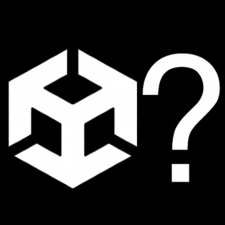As the industry moves from shock and dismay regarding the introduction of Unity's planned Runtime Fee to a state of numbed taking stock, there are still more questions than answers on how exactly their new tiers and proposed 'per install' payments will work and what they mean for each developer's specific set of circumstances.
While Unity themselves have taken to social media to clarify some issues, the debate around some major aspects still rages. Most specifically how will Unity be logging the installs they require to extract their new 'per install' fee and if these numbers will be presented in an open, auditable form.
And while the notion of price reductions on that $0.20 fee per install have been floated, the details of exactly what devs must do in order to qualify remain ellusive.
Most pressingly speculation as to the level of potential fees that a game will incur is producing multiple variations ranging from reasonalbe to catastrophic…
One such CEO seeking answers is Kalle Kaivola CEO of Lightheart Entertainment, the makers of Mr Autofire, the popular endless run and gun action game.
Taking to LinkedIn he neatly summed up what many devs need to know and while a 100% U-turn on Unity's plans grows increasingly unlikely, the need for clarity and explanation grows increasingly more urgent.

I think the biggest thing that they need to open up is the installs. Specifically how they will calculate them and even more importantly, how we as developers will be able to audit the numbers if and when they don’t match with what we’re seeing. What is the technology, what is the process, and what is the recourse?
Secondly, if they offer discounts that tie in to using their other products as they seem to indicate, we need some clear language and numbers on what that means so we can do the math and make decisions.
There’s a whole separate issue of whether the new terms of service can even override all the old ones. They would do well to address what their take on this is and maybe open back up the repository of previous terms so everyone can make decisions on this. This is obviously a topic for lawyers, but even they need to know where to start.
All three have one thing in common. They lack transparency, and currently there is a lot of guesswork going on.
Unity seem to be either silent or pushing out preplanned programming instead of corrections or - even better - calculations of their own.Lightheart Entertainment's Kalle Kaivola
The big question: How much?
A good example of this is the pricing itself, which should be pretty straightforward to calculate. However, I’ve seen a lot of posts on LinkedIn and Twitter about how actually the install fee won’t be that bad once you get to 1m+ installs after passing the initial lifetime threshold.
The thing is, Unity changed the language in the table some time after they posted it (but didn’t call attention to that specific change) as is visible from a lot of screenshots - it now explicitly states the install fee tiers post threshold are monthly. If you have 100K installs or fewer montly, you’re constantly on the highest tier even with Pro and Enterprise ($0.15 and $0.125 per install, respectively).
Unsurprisingly many calculations were led astray by almost an order of magnitude, expecting the install fees to average 1-3 cents at scale. Again, it would help if Unity transparently refuted the mistaken calculations but the Twitter and LinkedIn accounts seem to be either silent or pushing out preplanned programming instead of corrections or - even better - calculations of their own.
90% of devs will be fine?
Unity has been acknowledging “confusion” and strangely attempting to frame the conversation around their assessment that 90% of their users don’t have products that fall into this category instead of owning up to a decision to put themselves on a speedy timer for developers to have to make very important decisions. Decisions on whether to continue partnering with them in building games and marketing through their channels and with their tools.
Whichever way the decisions go the impact will be significant for all parties.
Unity, please open up. We all have decisions we need to make. Both short term and long term.






















